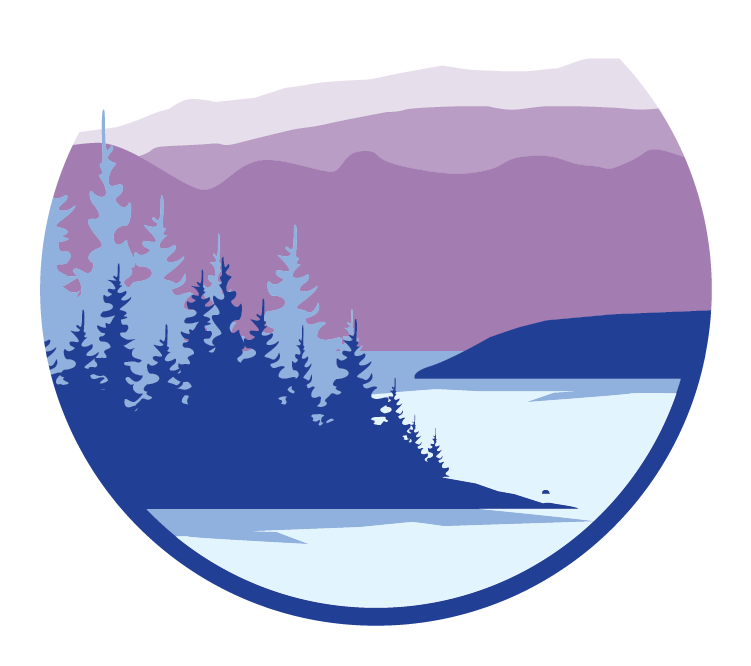Montana legislative update
As 'Defenders of the Watershed', the Flathead Lakers are following bills in the 2021 Legislative Session that potentially impact the Flathead Watershed. We ask our members to contact their representative, and OPPOSE SB 165, SB 358, and SB 211.
We have made it past the halfway point of the 2021 MT Legislative Session and bills are quickly moving through their chambers before going to the Governor’s desk for final approval. Below are our top priority bills that we are asking our members to contact their representatives, and OPPOSE SB 164, SB 358, and SB 211.
ACTION: Call the Capitol Switchboard to leave a message for your representative at (406) 444-4800, or send them an online message HERE, and tell them to vote NO on SB 165, SB 358, and SB 211. The Capitol Switchboard is open between 7:30 a.m. and 5:00 p.m.
Click HERE to find out who your legislators are.
Priority bills:
OPPOSE SB 164, carried by Sen. Carl Glimm (R): Revise non-degredation standard for nitrates.
We are still in shock that legislators are even considering this bill, which has advanced to the House Natural Resources Committee. SB 164 would significantly increase the allowable level of nitrates in groundwater. Nitrates are the primary cause of green algae blooms that blanket stream bottoms and harm aquatic life. Not only are nitrates bad for aquatic life, but they are also incredibly harmful to human health.
Flathead Lake is known as one of the clearest lakes of its size and type due largely in part to its relatively low nitrogen levels. This bill not only threatens the health of Flathead Lake, but would lead to degraded water quality, aquatic habitat, and drinking water all across the state.
OPPOSE SB 358, carried by Sen. John Esp (R): Repeal numeric nutrient standards for water quality.
SB 358 would repeal important water quality numeric nutrient standards, which are necessary environmental baselines that drive water quality assessments and watershed protection management. SB 358 is a look before you leap bill which would take us from a proactive approach to nutrient management to a crisis management approach with no plan on how these standards would be implemented. Dropping nutrient standards without having a plan is both reckless and irresponsible.
In the past year, Montana has seen an increase in nutrient pollution in our waters, which threaten water ecology and the economies they support. As development continues to increase in the state, relaxing our current nutrient standards would make it easier to pollute Montana waters.
OPPOSE SB 211, carried by Steve Fitzpatrick (R): Revise local subdivision review criteria regarding agriculture.
To put it bluntly, SB 211 is an attack on Montana agriculture and would exclude consideration of agriculture soils in the subdivision review process. The agricultural sector is Montana’s leading industry. But the state is experiencing a loss of agricultural resources. Once agricultural soils are developed, its production capabilities are lost forever. If SB 211 passes, local governments would no longer have the power to protect agricultural land during subdivision review. Contact your representatives and tell them to vote NO on SB 211 to protect critical Montana soils and our economy.
Other bills we’re tracking:
OPPOSE SB 352, carried by Sen. John Esp (R): Clarify objections to water rights.
This bill would drastically amend Montana water law and would limit who has the ability to object to another party’s water rights. If the bill passes, only water right owners would have standing in water court. The Montana Constitution states that all Montana waters are the property of the State of Montana for the use of its people. Water right changes affect all users in a watershed, not only the owner of the water right. SB 352 would essentially restrict public input on water right changes.
OPPOSE HB 498, carried by Rep. Steve Gunderson (R): Clarify jurisdiction of board of oil and gas conservation.
This bill would mandate that no local zoning or planning ordinance may prevent the complete use, development, or recovery of any mineral recovered by a sand and gravel operation, forest, or agricultural resource under the jurisdiction of the Board of Oil and Gas Conservation. It would prevent local governments from limiting the placement of oil and gas operations near schools, nursing homes, or other sensitive locations. Basically, if there are minerals found, these entities can take them regardless of zoning laws.
SUPPORT HB 152, carried by Rep. Neil Durham (R): Requiring drain plugs to be disengaged to prevent aquatic invasive species.
The first draft language of the “Pull the Plug” Bill would have required that watercraft owners remove their (drain) plugs during transport in vessels that can hold standing water (ballast, bilge, etc.). This bill would have brought Montana into best practices for preventing AIS. However, the bill language has now been updated and no longer requires that drain plugs be pulled during transport, which defeats the entire purpose of the bill. Although the bill’s language has changed, we still support HB 152 but are urging our legislators to amend the bill to once again require that drain plugs be disengaged during transport to better protect Montana waters. Contact your representative and tell them to change the language of HB 152 to require plugs be disengaged during transport to protect Montana waters from AIS.
SUPPORT HB 40, carried by Rep. Willis Curdy (D): Revising laws on mandatory decontamination of vessels with ballast and bladders.
This is a cleanup bill that would allow Fish, Wildlife, and Parks to set standards that would exempt boaters from AIS inspection who have proof that their vessel has not been launched in any body of water for 45 days after they’ve already been expected. We’re happy to report this bill was passed by the Legislature and is in the final preparation process before going to the governor’s desk for a signature.
SUPPORT SB 40, carried by Janet Ellis (D): Adds 2 new members to the DNRC invasive species council.
This bill would add two new members to the invasive species council, one from the Upper Columbia Conservation Commission (UC3) and one from the Department of Livestock. SB 40 was transmitted to the House with a vote of 44 (yes) to 6 (no). The next hearing for this bill is scheduled for March 19 at 3 pm in the House Natural Resources Committee.


